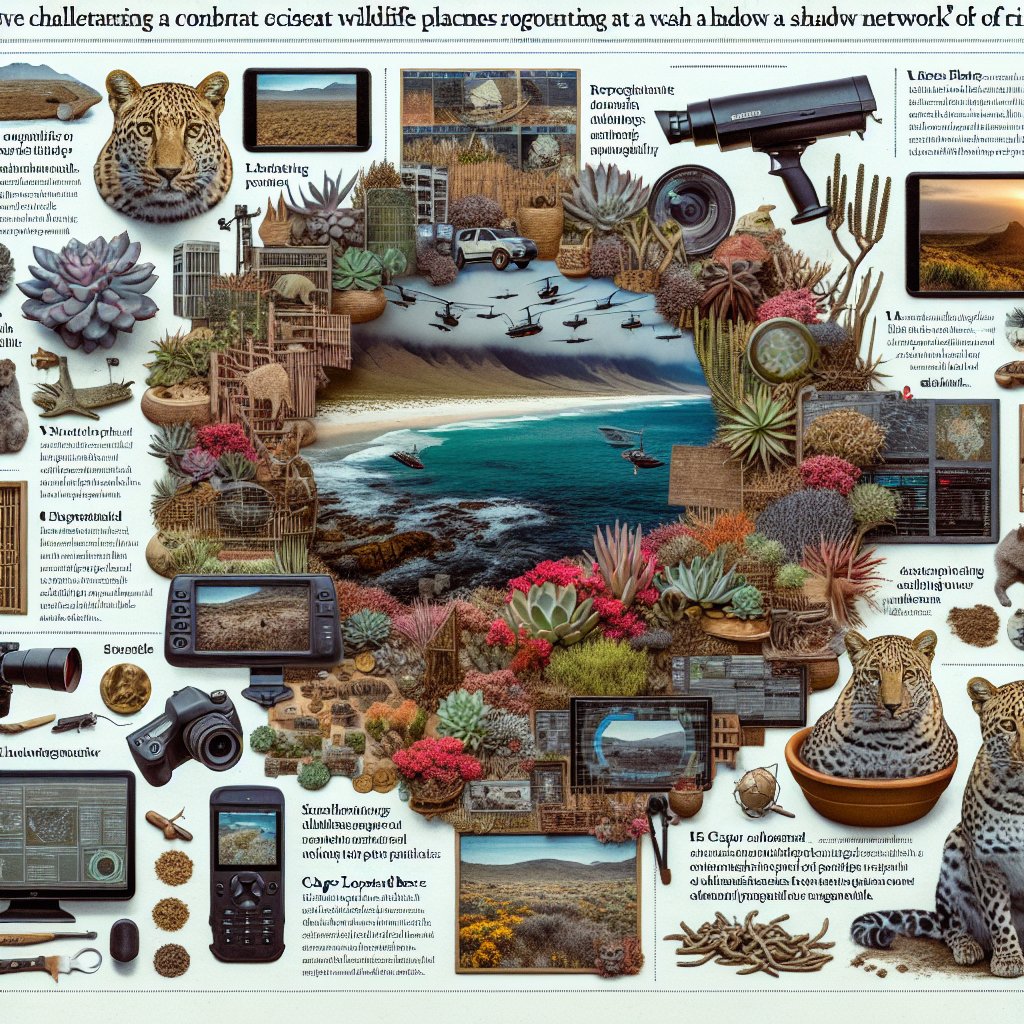Image created by AI
CapeNature Takes a Stand Against Rampant Wildlife Crime in the Western Cape
CapeNature, the Western Cape's custodian of conservation efforts, is facing a dire challenge in combating a worrying rise in wildlife crimes, particularly the rampant illegal trade in indigenous succulent plants. With over half of South Africa's flora species residing in the Western Cape, many endemic species are under threat from poachers targeting this rich biodiversity for illicit markets in East Asia.
The 2023 State of Biodiversity Report signals an alarming trend with incidents of succulent poaching and trafficking escalating profoundly over the last five years. Starting from just 4% of wildlife crime in 2018/19, the illicit succulent trade has spiked to constitute 54% of all registered cases by 2021/22—a stark indicator of the scale of this environmental emergency.
In the four-year period, strong efforts have been made to intercept the illegal activity, with over 1.2 million wild harvested plants from 650 different species seized. However, despite best efforts, law enforcement experts estimate that a mere quarter of the illicit trade is being captured, pointing towards a vast, shadow network of wildlife crime.
The ecological repercussions of unsustainable plant harvesting are detrimental. Removing plants from their natural habitats faster than they can regenerate undermines the delicate balance necessary for species survival, thus highlighting the critical requirement for knowledgeable and sustainable harvesting practices.
Globally recognized as second only to environmental damage as a threat to species survival, wildlife crime encompasses all facets of the unauthorized sale or exchange of wildlife and plant segments or derivatives. Robust legislation exists at provincial, national, and international levels to thwart biodiversity exploitation. Yet ongoing violation of these protections remains a persistent threat.
CapeNature, alongside WWF South Africa and the Leslie Hill Succulent Karoo Trust, with the support of WWF's Land Programme, has initiated a project aimed at galvanizing community awareness and fostering a collective response toward stopping these illicit activities.
Public involvement is integral to CapeNature's approach to combating wildlife crime. The organization calls upon South Africans to report any suspicious activity related to the illegal collection and trade of indigenous species. This engagement is essential for turning back the tide on the increasing threat to the Western Cape’s biodiversity.
Additionally, CapeNature celebrates the recognition of Die Plaat Beach as a top global beach, and the unveiling of Kai the Cape leopard cub as the newest Cubs Club ambassador. These moments of pride act as reminders of the precious natural heritage that is imperative to protect from wildlife crime.










